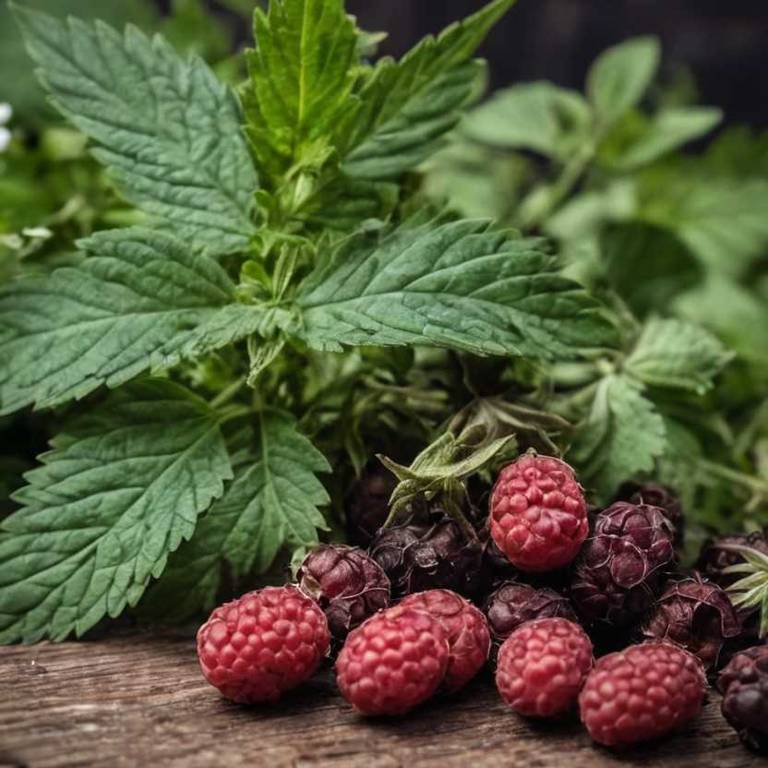Blackberry (Rubus fruticosus)
Blackberry (Rubus fruticosus) is a member of the Rosaceae family, native to Europe, Asia, and North Africa. Traditionally, its fruits, leaves, and stems have been used for decoctions, infusions, and poultices.
This herb is particularly valued for its anti-inflammatory, diuretic, and astringent actions, and has a long history of use in european herbal medicine, mediterranean herbal traditions, and native american herbal medicine.

Quick Facts / Key Information
| Common Name | Blackberry |
|---|---|
| Scientific Name | Rubus fruticosus |
| Plant Family | Rosaceae |
| Genus | Rubus |
| Species | fruticosus |
| Native Range | Europe, Asia, North Africa |
| Plant Parts Used | Fruits, Leaves, Stems |
| Primary Medicinal Actions | Anti-Inflammatory, Diuretic, Astringent |
| Primary Traditional Systems | European Herbal Medicine, Mediterranean Herbal Traditions, Native American Herbal Medicine |
| Historical Preparation Methods | Decoction, Infusion, Poultice |
Botanical Identity
- Scientific Name
- Rubus fruticosus
- Common Name
- Blackberry
- Synonyms / Alternative Names
- Wild Blackberry, Blackberry Bush, Thorny Bramble
- Plant Family
- Rosaceae
- Genus
- Rubus
Botanical Description
- Growth Habit
- Perennial herbaceous plant.
- Height
- It typically grows to a height of 1 to 2 meters.
- Leaves
- Lateral veins form a dense reticulum on the upper surface, while the lower surface exhibits a smooth, glabrous texture with prominent stomatal bands.
- Flowers
- Inflorescences consisting of clusters of small actinomorphic flowers with five white petals and five yellow stamens arranged in a cyme, each flower having five stigmatic lobes and a superior ovary with two carpels
- Stems
- Woody, thorny, erect, branched, with alternate, simple, hairy, angular, and slightly pubescent stems.
Traditional Uses / Historical Use
Traditional Systems
- European Herbal Medicine
- Mediterranean Herbal Traditions
- Native American Herbal Medicine
Historical Preparation Methods
- Decoction
- Infusion
- Poultice
- Powder
Medicinal Actions
- Anti-inflammatory
- Commonly referenced as a calming anti-inflammatory, for irritation-related applications.
- Diuretic
- Historically regarded as a mild diuretic, in fluid-regulation contexts.
- Astringent
- In herbal literature, noted as a warming astringent, for surface-level applications.
- Tonic
- Traditionally described as a cooling tonic, for long-term use contexts.
Active Compounds
- Flavonoid
- A group of naturally occurring compounds commonly present in many flowering plants.
- Tannin
- Plant-derived compounds known for their ability to bind proteins.
- Phenolic Acid
- Simple phenolic molecules widely distributed across plant tissues.
- Coumarin
- A group of secondary metabolites present in seeds, roots, and leaves.
Modern Research Overview
This section is reserved for future summaries of scientific research related to this plant. As additional verified sources are reviewed, relevant study information will be added here.
Safety & Contraindications
- General Precautions
- General precautions have been noted regarding the use of this herb.
- Contraindications
- Specific contraindications associated with this herb have not been well documented.
- Allergies
- Reports of allergic reactions to this herb are not well documented in available sources.
- Drug Interactions
- Interactions between this herb and prescription medications are not clearly established.
- Toxicity
- The use of this herb has been linked to reported toxic effects.
- Pregnancy & Breastfeeding
- Information addressing pregnancy and breastfeeding-related safety for this herb is limited.
Preparation & Usage Methods
- Infusion
- Plant material is steeped in hot water to extract water-soluble compounds.
- Decoction
- This method uses sustained heat to extract compounds from firm plant structures.
- Poultice
- Poultices involve external application of prepared plant matter.
- Culinary Use
- Plant material is incorporated into food or beverages for flavor or aroma.
- Powder
- A preparation created by pulverizing dried plant material.
Growing, Harvesting & Storage
Growing / Cultivation
- Soil
- Prefers loamy soil with well-drained conditions. Typically grows best in organically rich soils.
- Sunlight
- Thrives in full sun. Tolerates full sun to partial shade.
- Watering
- Prefers seasonally moist soils. Tolerates periodic dry conditions.
Medical Disclaimer
The information provided on this page is for educational and informational purposes only. It is not intended to diagnose, treat, cure, or prevent any medical condition. Always consult a qualified healthcare professional before using any herb for medicinal purposes.